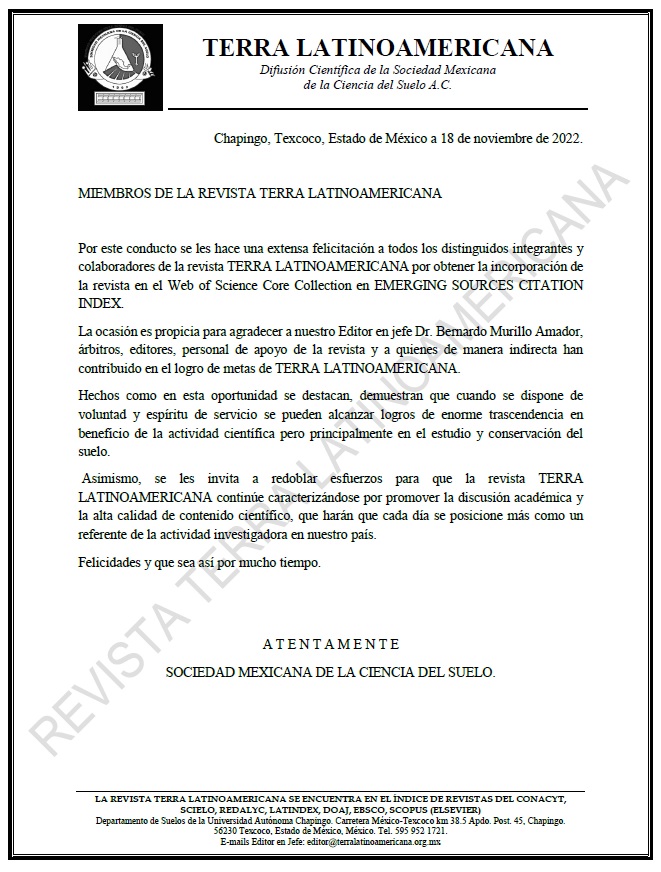Respuesta de plantas de tomate al combustible diesel, gasolina y benceno
DOI:
https://doi.org/10.28940/terra.v37i4.543Palabras clave:
calidad de fruto, fracción hidrocarbono, Solanum lycopersicum L., agua producidaResumen
La industria petrolera produce agua de desecho (agua producida), la cual contiene hidrocarbonos, metales pesados, y otros componentes, tales como sales minerales esenciales para la nutrición vegetal. La presencia de hidrocarbonos en las aguas producidas limita su uso potencial en la agricultura, como su efecto en la inhibición del crecimiento de las plantas. Esta investigación tiene el objetivo de investigar el efecto de los hidrocarbonos contenidos en las aguas producidas, en 1) el pH y la conductividad eléctrica (CE) del agua de riego drenada, 2) variables morfológicas de las plantas, 3) concentración mineral, 4) pH, CE y sólidos solubles totales en el fruto (SST), durante las etapas de floración y fructif icación en tomate cultivado en invernadero. Como fuente de las aguas producidas se utilizó diésel en concentraciones de 20 y 25 mg L-1, gasolina en 40, 50 y 60 mg L-1, y benceno en 75 mg L‑1, aplicados en el sustrato con una jeringa. Todas las plantas tratadas con hidrocarbonos alcanzaron la formación de frutos y etapa de maduración del 6to. racimo. Dependiendo del tipo, concentración, t tiempo de exposición, los hidrocarbonos modif icaron el pH y la CE del agua de riego drenada, causaron cambios signif icativos en la morfología con en tiempos prolongados de exposición, y restringieron la producción de biomasa. La concentración mineral mostró diferencias signif icativas entre los órganos de las plantas, afectando principalmente la absorción de sodio en los tallos y frutos. Las variables de calidad del fruto, CE y SST fueron modif icados favorablemente por la mayoría de los tratamientos.Descargas
Publication Facts
Reviewer profiles N/D
Author statements
- Academic society
- Terra Latinoamericana

















